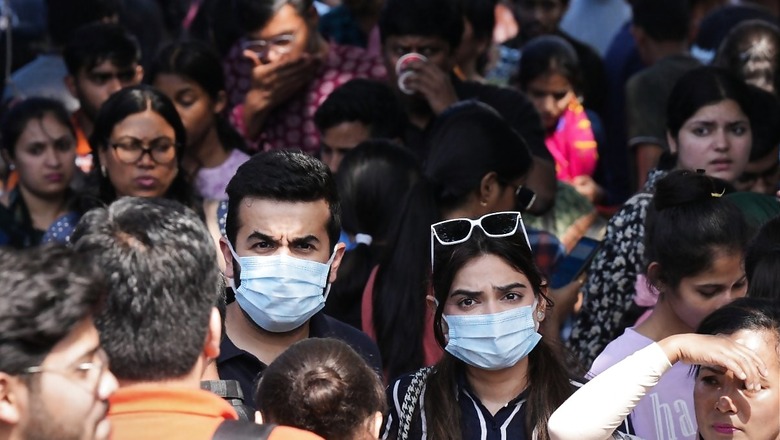
views
As the COVID-19 pandemic continues to impact communities worldwide, emerging evidence suggests that the aftermath of the virus may extend beyond the acute phase. Post-COVID complications, also known as long COVID or post-acute sequelae of SARS-CoV-2 infection (PASC), are increasingly being recognized as a concerning health issue. From persistent symptoms such as fatigue, shortness of breath, and cognitive difficulties, to organ-specific complications like myocarditis and pulmonary fibrosis, post-COVID complications are on the rise. There is a growing body of evidence on post-COVID complications, their potential impact on individuals and healthcare systems, and the need for further research and support for affected individuals.
“There has been a rise in the number of patients experiencing Post-COVID complications. These complications can range from neurological issues to cardiovascular problems, and can affect patients of all ages. However, it is the elderly population and those with pre-existing conditions who are at the highest risk,” says Dr Brunda, Consultant, Internal Medicine, Aster CMI Hospital.
We need to understand that COVID-19 is not just a respiratory illness, it can have long-term effects on the body. Some patients may experience ongoing fatigue, shortness of breath, and muscle weakness, while others may develop blood clots or suffer from cognitive impairment.
Dr Vandana, AFP, Apollo Clinics, says, “”It has been observed that people are having many complications post-COVID treatment in the long run. They are in need for extended support and treatment for the same. Some of the most common issues include Chronic Fatigue Syndrome, headaches, Vertigo, difficulty with cognition and disturbed sleep. Other issues include joint pains, body ache, muscle weakness, breathing difficulties and frequent cold. We have also observed patients complain about fever, persistent and prolonged cough and palpitation.”
“We noticed that in such patients there are sign of myocardial damage, cardiomyopathy, arrhythmia, fibrosis and overall reduced cardio-respiratory fitness. All of these are a result of cellular damage caused by inflammatory response of our body,” adds Dr Vandana.
People with comorbidities such as obesity, asthma, etc along with young people who were affected by mild COVID are showing the most symptoms of post-COVID complications.
Solutions
The key to managing these complications lies in early detection and a multidisciplinary approach to care. “We need to focus on post-COVID rehabilitation programs that include physical therapy, occupational therapy, and mental health counselling. It is also important to monitor patients closely and address any potential complications as they arise,” opines Dr Brunda.
The solutions for such patients includes maintaining COVID appropriate behavior such as wearing masks and frequent sanitation. They would need to increase their immunity and overall health through rehabilitation programs. “Lifestyle changes such as regular exercise, yoga, breathing exercises and steps to decrease obesity should be initiated. Healthy nutrition that includes minerals and vitamins like B12, Vitamin D, Calcium, Magnesium and Vitamin K2 should be included in diet. A regular health check-up and vaccination will also help such patients improve their condition,” believes Dr Vandana.
In conclusion, post-COVID complications are a serious concern, and we need to take a proactive approach to manage them.
Read all the Latest Lifestyle News here



















Comments
0 comment